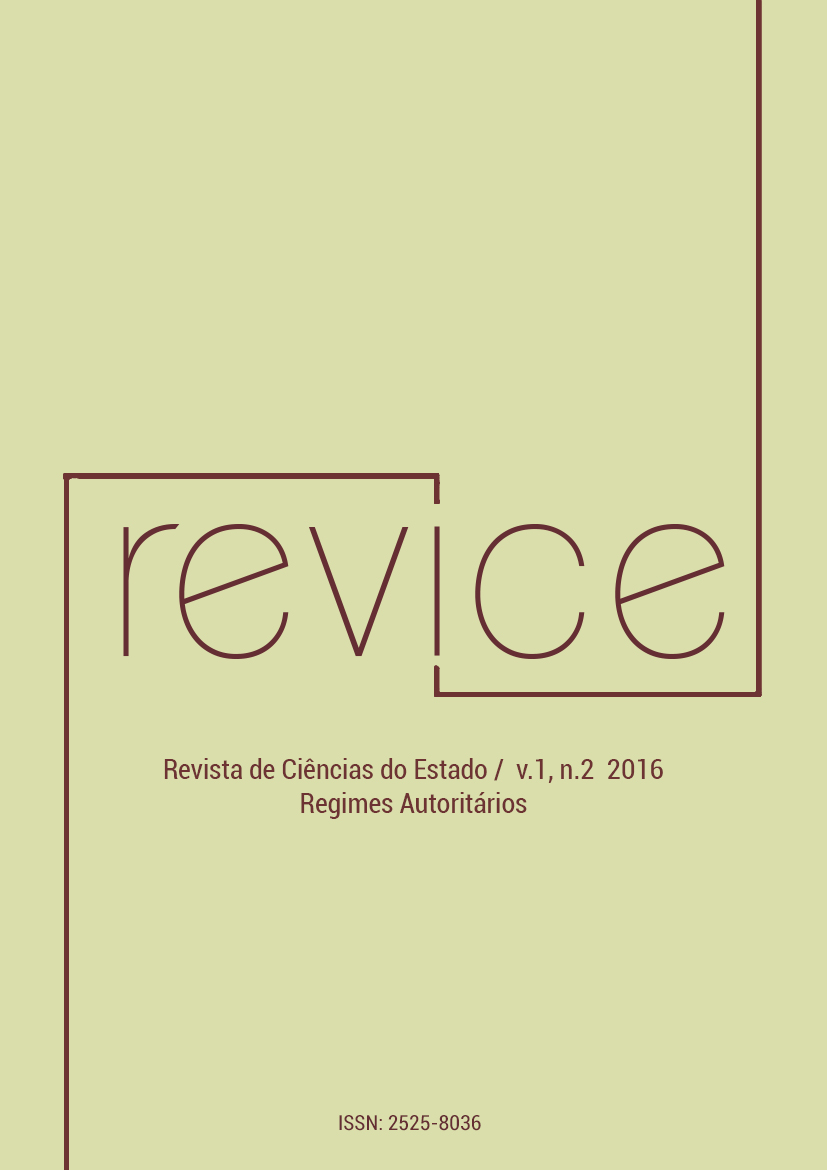What future generations need to know about amnesty
DOI:
https://doi.org/10.35699/2525-8036.2016.5011Keywords:
Human Rights, Amnesty Fundamental Rights,, Society, Future GenerationsAbstract
Based on the study of the Amnesty Law, and the Principles of Human Rights. The twentieth century was a scenario marked by big wars and civil conflicts. Combating these oppressions was through a broad democratic ideal that can still be seen to be constructed in the western world, with repercussions involving future generations. In the midst of these buildings and repercussions, the delivery force of the Amnesty Law came to fill the gaps of the judiciary in relation to the problems that erupted over the years in Brazil from 1964. Future generations need to be aware of events not to allow prisoners to be social ideas torturer that time and thus form a critical sense of better prospects for the setbacks do not happen again in Brazilian society. The amnesty is not only broad, general and unrestricted said in the campaign organized by intellectuals, journalists, artists, progressive politicians, religious of various creeds, trade unionists and students in 1978 to fight the military dictatorship. Today amnesty is one of the voices for human rights, so that every person is free to live their lives with dignity and in no way should suffer oppression or inequality. So the Amnesty struggle is for everyone and by everyone, including future generations.
Downloads
References
ARENDT, Hannah. As origens do totalitarismo. 1951.
_______; ARAÚJO, Maria Paula (orgs.). 1968: 40 Anos Depois – História e Memória. Rio de Janeiro: 7Letras, 2009.
ANDREW, Reiter; AFFONSO, Beatriz; VENTURA, Daisy; SKAAR, Elin; VIEIRA DE SOUSA, Jassy Jasi; MOREIRA DA SILVA FILHO, José Carlos ; SIKKINK, Katharyn; A. PAYNE, Leigh; VINJAMURI, Leslie; MALLINDER, Louise; D. TORELLY, Marcelo; PENSKY, Max ; ROHT ARRIAZA, Naomi; AGUILAR, Paloma; ENGSTROM, Par; ABRÃO, Paulo; CLARK, Phil; CAMINEIRO BAGGIO, Roberto; OLSEN, Tricia; KRSTICEVIC, Viviana, Organizadores - LEIGH A. PAYNE; PAULO ABRÃO; MARCELO D. TORELLY. A anistia na era da responsabilização: o Brasil em perspectiva internacional e comparada. Brasília: Ministério da Justiça, Comissão de Anistia; Oxford: Oxford University, Latin American Centre, 2011. 571 p.
BOURDIEU, Pierre. Efeitos de Lugar. In: A Miséria do Mundo. Petrópolis, RJ: Vozes, 1999.
CARVALHO, Apolônio de. Vale a Pena Sonhar. Rio de Janeiro: Rocco, 1997.
COIMBRA, Cecília Maria Bouças. Gênero, Militância e Memória. In: STREY, Marlene Neves (org.). Violência, Gênero e Políticas públicas. Porto Alegre, RS: PUCRS, 2004.
CONTREIRAS, Hélio. Militares, Confissões: Histórias Secretas do Brasil. Rio de Janeiro: MAUAD, 1998.
_______. Como eles agiam - os subterrâneos da Ditadura Militar: espionagem e polícia política. Rio de Janeiro: Record, 2001.
_______. Espionagem, polícia política, censura e propaganda: os pilares básicos da repressão. In: FERREIRA, Jorge; DELGADO, Lucilia de Almeida Neves (orgs.). O Brasil Republicano: o tempo da ditadura – regime militar e movimentos sociais em fins do século XX. Rio de Janeiro: Civilização Brasileira, 2003.
FICO, Carlos. Além do Golpe: Versões e controvérsias sobre 1964 e a Ditadura Militar. Rio de Janeiro: Record, 2004.
GESTA LEAL, Rogéri. Verdade, memória e justiça [recurso eletrônico], Santa Cruz do Sul: EDUNISC, 2012. Dados eletrônicos. Texto eletrônico. Modo de acesso: World Wide Web: .
GRAMSCI, Antônio. Os intelectuais e a organização da cultura. Rio de Janeiro: Civilização Brasileira, 1974.
JUNIOR, José Geraldo de Souza, PAIXÃO, José Carlos Moreira da Silva Filho Cristiano, FONSECA, Lívia Gimenes Dias da, RAMPIM, Talita Tatiana Dias. O direito achado nas ruas, 7° volume, Introdução Crítica à Justiça de Transição na América Latina, 24 de janeiro, 2016.
MACDOWELL SANTOS, Cecilia; FRANTZ, Daniela; CARLET Flavia; MOREIRA DA SILVA FILHO, José Carlos; MEREGALI MODEL FERREIRA, Kelen; D. TORELLY, Marcelo; NATERCIA COIMBRA, Maria; MENESES, Maria Paula; ABRÃO, Paulo; CAMINEIRO BAGGIO, Roberta; RODRIGUEZ MAESO, Silvia; GENRO, Tarso; TANNUS GRAMA, Tatiana; DAVI FERNANDES DE OLIVEIRA, Vanda. Organizadores - DE SOUSA SANTOS, Boaventura; ABRÃO, Paulo; MACDOWELL SANTOS, Cecília; D. TORELLY, Marcelo. Repressão e Memória Política no Contexto Ibero-Brasileiro: estudos sobre Brasil, Guatemala, Moçambique, Peru e Portugal. Brasília: Ministério da Justiça, Comissão de Anistia; Portugal: Universidade de Coimbra, Centro de Estudos Sociais, 2010. 284 p.
_______. O DOI-CODI do Rio de Janeiro na memória de ex-prisioneiros políticos. In: THIESEN, Icléia (org.). Imagens da Clausura na Ditadura de 1964: Informação, Memória e História. Rio de Janeiro: 7Letras, 2011.
SHINKE, Vanessa Darneles. Os Indícios do Discurso do esquecimento: A Anistia de 1979 à luz da Teoria Discursiva do Direito e da Democracia, in: Micro Revista, 27/11,2009.
Downloads
Published
How to Cite
Issue
Section
License
Copyright (c) 2016 Revista de Ciências do Estado

This work is licensed under a Creative Commons Attribution-NonCommercial-ShareAlike 4.0 International License.
1. Os conteúdos dos trabalhos são de exclusiva responsabilidade de seu autor.
2. É permitida a reprodução total ou parcial dos trabalhos publicados na Revista, desde que citada a fonte.
3. Ao submeterem seus trabalhos à Revista os autores certificam que os mesmos são de autoria própria e inéditos (não publicados em qualquer meio digital ou impresso).
4. Os direitos autorais dos artigos publicados na Revista são do autor, com direitos de primeira publicação reservados para este periódico.
5. Para fins de divulgação, a Revista poderá replicar os trabalhos publicados nesta revista em outros meios de comunicação como, por exemplo, redes sociais (Facebook, Academia.Edu, etc).
6. A Revista é de acesso público, portanto, os autores que submetem trabalhos concordam que os mesmos são de uso gratuito.
7. Constatando qualquer ilegalidade, fraude, ou outra atitude que coloque em dúvida a lisura da publicação, em especial a prática de plágio, o trabalho estará automaticamente rejeitado.
8. Caso o trabalho já tenha sido publicado, será imediatamente retirado da base da revista, sendo proibida sua posterior citação vinculada a ela e, no número seguinte em que ocorreu a publicação, será comunicado o cancelamento da referida publicação. Em caso de deflagração do procedimento para a retratação do trabalho, os autores serão previamente informados, sendo-lhe garantido o direito à ampla defesa.
9. Os dados pessoais fornecidos pelos autores serão utilizados exclusivamente para os serviços prestados por essa publicação, não sendo disponibilizados para outras finalidades ou a terceiros.



